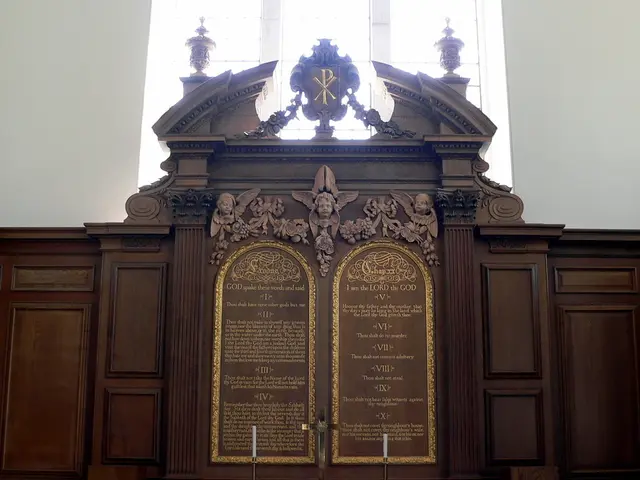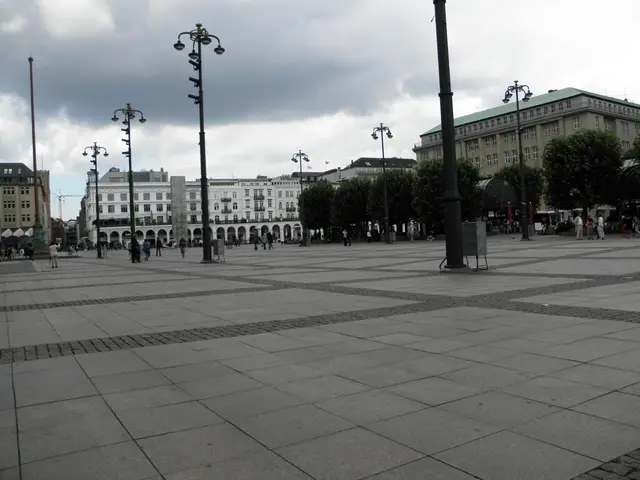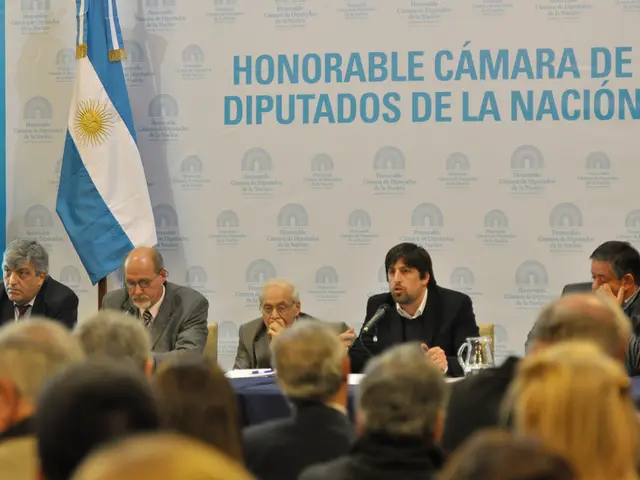Government tactics to muzzle speech sans outright ban:
The federal government's tactics to limit free speech have evolved, moving away from overt methods such as censorship. Today, its strategies are subtler yet equally effective in suppressing dissent, as demonstrated by the Trump administration's approach.
In the past, the government has attempted to block media outlets from publishing specific content, punished political dissenters, and banned the sale of books deemed "obscene." However, these days, the government employs less direct yet highly potent methods to mute opposition.
During my 25 years of research and writing about First Amendment rights, I have observed a variety of tools governments use to stifle free expression. The current administration's preferred methods include coercing institutions to alter or halt their advocacy to secure government benefits, inducing self-censorship through intimidation, and molding government speech to promote an official ideology.
The Harvard community, for example, has faced potential retribution for standing against controversial policies. The Supreme Court has clarified that the First Amendment prevents the government from conditioning benefits on the sacrifice of free speech. Yet, the Trump administration has issued orders that withdraw security clearances, cancel government contracts, and bar access to government buildings for law firms opposing its policies. Some of these law firms have taken legal action to challenge the orders, while others have opted to capitulate and modify their approaches to align with the administration's stance.
Similar tactics have been applied to the entertainment industry, with the Federal Communications Commission (FCC) expressing concerns about a "chilling effect" on free speech under the Trump administration. Universities, too, have felt the pressure, with the administration withholding funding from institutions that embrace diversity, equity, and inclusion, or perceived as fostering antisemitism. While Harvard University has resisted such pressure, Columbia University has yielded, adjusting policies as requested by President Trump.
While the Supreme Court may one day rule these administrative gambits unconstitutional, the White House has already managed to pressure major institutions into changing their speech. The administration's suppression methods extend beyond overt censorship, creating an atmosphere of self-censorship and intimidation.
The government may not control speech through vague laws that leave people unsure if they are affected, as evidenced by the Supreme Court's 1971 ruling against a Cincinnati ordinance that criminalized any public assembly deemed "annoying." Nor can the government force people to disclose their identities as a requirement for acquiring controversial literature or supporting unpopular causes, such as the Supreme Court's decision during the civil rights era to block Alabama from obtaining the NAACP's membership list.
Yet, the current climate suggests that the Trump administration's indirect methods have dampened free expression. College and university campuses, once bustling with protests, have gone largely quiet under the administration. Large corporations that opposed the first Trump presidency now align with the second, a testament to the administration's ability to instill fear and self-censorship.
While some might attribute this silence to fatigue or resignation, it appears that successful intimidation plays a significant role as well. The administration has cautioned noncitizen students that their lawful speech could be used as justification for deportation. Although this tactic might not directly violate the First Amendment, it creates a chilling effect on both foreign nationals and U.S. citizens.
Government officials, through their speech, can shape public discourse by promoting official ideologies. The Trump administration has sought to have Vice President JD Vance "seek to remove improper ideology" from institutions like the Smithsonian, potentially giving him control over how the public perceives sensitive subjects like slavery and Jim Crow.
In an era where trust in government and other institutions is crucial, addressing these indirect methods of suppressing free speech is essential to preserving democracy.
- The federal government's strategies to limit free speech have become subtler, as demonstrated by the Trump administration's approach, moving away from overt methods like censorship.
- During my research, I have observed that the government uses various tools to stifle free expression, such as coercing institutions to alter their advocacy, inducing self-censorship through intimidation, and molding government speech to promote an official ideology.
- The Trump administration has issued orders that withdraw security clearances, cancel government contracts, and bar access to government buildings for law firms opposing its policies, creating a chilling effect on free speech.
- Universities, too, have felt the pressure, with the administration withholding funding from institutions that embrace diversity, equity, and inclusion, or perceived as fostering antisemitism.
- While the Harvard University has resisted such pressure, Columbia University has yielded, adjusting policies as requested by President Trump, indicating a shift in the entertainment industry's stance under the current administration.
- The administration's suppression methods extend beyond overt censorship, creating an atmosphere of self-censorship and intimidation, which has led to a noticeable decline in free speech on college and university campuses.
- In an era where trust in government and other institutions is crucial, addressing these indirect methods of suppressing free speech is essential to preserving democracy, questioning the role of Vice President JD Vance in potentially shaping public discourse by seeking to remove improper ideology from institutions like the Smithsonian.








